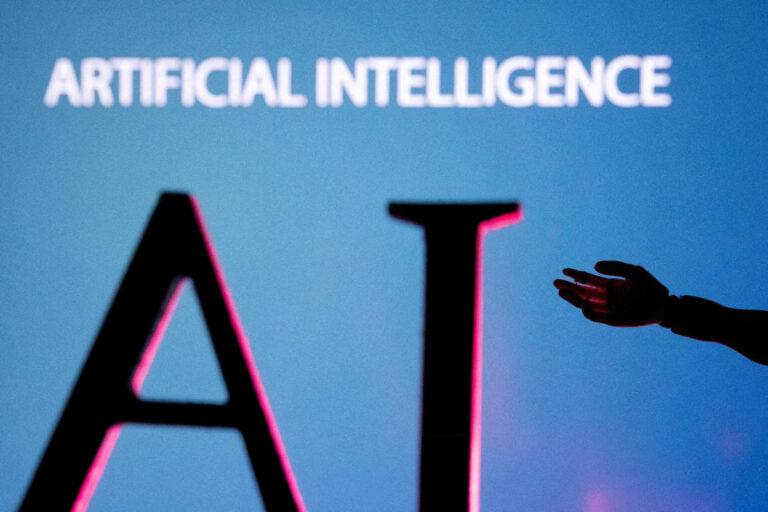The California state legislature has passed SB 1047, a sweeping artificial intelligence bill that seeks to establish protections for technology companies developing large-scale AI models. If enacted, the bill would dramatically change how big AI companies operate, sparking backlash from giants like OpenAI, Meta (META), and Google (GOOG, GOOGL).
Gov. Gavin Newsom has not said whether he plans to veto SB 1047.
In an interview with Yahoo Finance’s Brian Sozzi on Wednesday, Salesforce (CRM) CEO Marc Benioff spoke about the importance of regulation. “When we think about AI safety, it has to be in everybody’s best interest to make sure these AI models don’t get out of control,” Benioff said.
“And I think these ideas are really interesting and need to be fully evaluated. And it’s worth it.”
Democratic state Sen. Scott Wiener, who co-authored the bill, said the bill codifies the voluntary safety assessments already undertaken by large AI labs such as Meta. The bill would require developers to spend more than $100 million to build AI models and conduct safety tests on them before releasing them. If the tests show that the models could cause “catastrophic harm,” developers would have to mitigate the risk.
Supporters of the bill, including “AI godfathers” Yoshua Bengio and Geoffrey Hinton, say the regulations are essential to address the potential harms posed by AI models, a threat they say the government has not done enough to address.
“SB 1047 is a much-needed step to promote both safety and long-term innovation in the AI ecosystem, and in particular to encourage research and development in AI safety,” Bengio, a computer science professor at the University of Montreal, told Yahoo Finance.
Tesla (TSLA) CEO Elon Musk, who also owns xAI, voiced his support for X this week but said it was a “difficult decision.”
“I think California should probably pass SB 1047, the AI Safety Act. For over 20 years I have advocated for regulating AI just as we would regulate any product or technology that poses potential risks to the public,” he wrote.
Musk has previously called on AI labs to pause development of systems that can compete with human-level intelligence because of potential risks to society, but he has also been a sharp critic of California officials.
SB 1047 is co-sponsored by the Center for AI Safety Action Fund, California Economic Security Action and Encode Justice. “Holding Big Tech companies accountable for their disproportionate influence and unchecked power is long overdue,” California Economic Security Action Director Teri Aure told the Assembly.
“Legislation solutions like SB 1047 need to change that and allow the public to decide how critical technologies benefit society as a whole.”
A poll released this week by the Artificial Intelligence Policy Institute, a nonprofit that promotes safe AI development, found that seven in 10 Californians support the bill, and more than 60% of respondents said they would partially blame Newsom for future AI-related incidents if he vetoed the bill.
San Francisco Mayor London Breed, a longtime ally of Weiner’s, announced her opposition to the bill. “I share your desire for AI to develop in a safe and sustainable manner and support the overall intent of the bill,” Breed wrote in a letter to Weiner. “With additional time and collaboration, I am confident that we can find a solution that addresses many of the concerns raised in recent months while allowing this emerging sector to thrive in a safe and sustainable manner.”
Breed joins a growing list of California Democrats who oppose the bill, including former House Speaker Nancy Pelosi and Representatives Ro Khanna, Zoe Lofgren, Ana Eshoo, Scott Peters, Tony Cárdenas, Ami Bera, Nanette Díaz Barragan and Lou Correa.
The bill has been amended several times to assuage concerns from AI opponents, including Amazon-backed (AMZN) Antropic, Inc. Key amendments include eliminating the state regulatory body formerly known as the Frontier Model Division and eliminating criminal penalties, but leaving civil penalties in place.
Moreover, if an open source developer spends less than $10 million tweaking an existing model, liability will fall on the original developer of that model. The Attorney General’s authority to seek civil penalties is limited to situations where “harm has been caused or there is an imminent threat to public safety.”
Newsom has until Sept. 30 to decide whether to sign or veto the bill. When asked if he was confident the bill would pass, Wiener said, “What the governor has said is very much in line with my own thinking, which is that regulations can be appropriate here, and we want to make sure that we’re also encouraging innovation.”
Yasmin Coram is a senior reporter at Yahoo Finance. Follow Yasmin on Twitter/X Yasmin Coram and LinkedInSend Yasmin your newsworthy tip: yasmin.khorram@yahooinc.com
For the latest technology news impacting the stock market, click here
Read the latest financial and business news from Yahoo Finance


